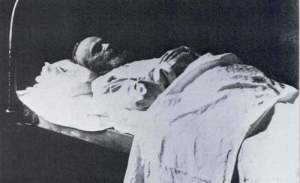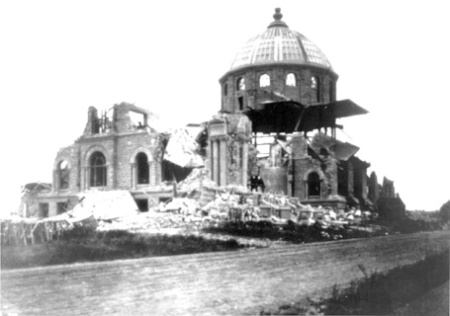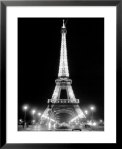We’re in our final laps now in Intro, with just Richardson’s James bio— usually a Friday affair– to finish.
The triumphant, prestigious, standard-setting Gifford Lectures in Scotland behind him, James is now over 60 and the country is literally on the move. Planes and automobiles are poised to join trains as popular people-movers: a good mirror of James’s insatiable craving for change, the most imperative of human needs. Unlike Henry Adams, James feels at home in the restless age of the “dynamo.” Henri Bergson‘s “creative evolution” and “life force,” and John Dewey‘s experimentalism, are also in step with the times, and with James’s radical empiricism. James pauses in 1903 to gaze back at Emerson, and to warn us all about the ravening tentacles of the “Ph.D. Octopus.” WJ 12
Also in this installment:
Change is one undeniable paradigm of the age and of James, man and philosopher alike. Chance is another. He invokes C.S. Peirce’s tychism to make the point that chance gives rise to order and hard-won unity.
Peirce called his doctrine that chance has an objective status in the universe “tychism,” a word taken from the Greek word for “chance” or “luck” or “what the gods choose to lay on one.” Tychism is a fundamental doctrinal part of Peirce’s view, and reference to his tychism provides an added reason for Peirce’s insisting on the irreducible fallibilism of inquiry. For nature is not a static world of unswerving law but rather a dynamic and dicey world of evolved and continually evolving habits that directly exhibit considerable spontaneity.
He wishes his brother the successful novelist would take more chances with his fiction and actually dare to tell a livelier, more spontaneous story not so meandering and parenthetical and “psychological.”
He might have wished Dewey would improve his style too, lacking as he was in “newspaporial virtues” (though I recall John McDermott once saying that Dewey’s prose was to him, as a young New Yorker, as solidly reliable as the good gray Times) but doesn’t press the point with the same fraternal familiarity. He does like Dewey’s emphasis on situations, environments, and reconstruction.
Emerson, he’s reminded while prepping for the Sage’s big centenerary celebration, was also a champion of change:
Life only avails, not the having lived. Power ceases in the instant of repose: it resides in the moment of transition from a past to a new state, in the shooting of the gulf, in the darting to an aim.
Jonathan Levin smartly discusses this famous passage in Poetics of Transition. What would it mean to “reside” in a such moment, really? We’re all just passing through.
James is still trying to “settle the Universe’s hash” at this time, plotting a book to impress his peers as much as he’s already impressed popular audiences. He’s also self-deprecating about this ambition, knowing it courts hubris and pretense. He thinks much the same of newly-emboldened academic institutional ambitions, agreeing with Emerson’s old critique of schools that churn out “more educated cleverness in the service of popular idols and vulgar ends,” a “more instructed fool.” He prefers a “truer” tolerance of exceptionality and eccentricity. What would he say about academia in our time? I’m pretty sure he’d begin with a “Bah!”
He’s beginning to try and construct the world out of pure experiences, but it’s proving an especially slippery concept. Is experience ever “pure,” untouched by human predispositions and conceptual inheritances?
The instant field of the present is always experienced in its ‘pure’ state. Plain unqualified actuality, a simple that, as yet undifferentiated into thing and thought, and only virtually classifiable as objective fact or as some one’s opinion about fact. This is as true when the field is conceptual as when it is perceptual. ‘Memorial Hall’ is ‘there’ in my idea as much as when I stand before it. I proceed to act on its account in either case. Only in the later experience that supersedes the present one is this naïf immediacy retrospectively split into two parts, a ‘consciousness’ and its ‘content,’ and the content corrected or confirmed. While still pure, or present, any experience –mine, for example, of what I write about in these very lines — passes for ‘truth.’ The morrow may reduce it to ‘opinion.’ A World of Pure Experience (1904)
And something much sillier: brother Henry shares his enthusiasm for the “Fletcherizing” craze. We’re still looking for short-cuts to health and happiness, aren’t we? And amusing ourselves with the spectacle of those who’ve chewed too much and now seek absolution through public humiliation. (I can’t look at “Biggest Loser” myself.)
William, in another moment of exasperation with his profession, declares to Sarah Whitman “that the desire to formulate truths is a virulent disease.” Better the life of immediacy, of enjoying life rather than endlessly analyzing it. But then reflection invariably breaks in, and the inveterate desire recurs. But if we’re going to formulate anything, hadn’t it better be truth?
Then his friend Sarah dies, italicizing his own mortality.
“Does Consciousness Exist?” wins Bertrand Russell’s favor with its denial that consciousness names an entity rather than a process and function of activity.
And James tries to rein in the youthful exuberance of his young ally Schiller, who embarrasses James with the personal nastiness of his attacks on pragmatism’s “enemies.” James never had enemies, just friendly opponents.
This section ends with the perfect non-ending, a rhetorical query from Mr. Blood that we’ll want to re-invoke again at book’s and course’s end: “What is concluded that we should conclude…?”
 On August 26, 1910 [in Chocorua, N.H.] at two-thirty in the afternoon, with Alice holding his head, William James died. At the end there had been, Alice noted, “no pain and no consciousness.”
On August 26, 1910 [in Chocorua, N.H.] at two-thirty in the afternoon, with Alice holding his head, William James died. At the end there had been, Alice noted, “no pain and no consciousness.”




